

A Practical Approach to Navigating Beyond Compliance in a Post Regulatory World
From One Title IX Coordinator to Another: Day 1
Ann James and Emma Hempel
July 2022
GRANDRIVERSOLUTIONS


Your Facilitators
Solutions Specialist
Solutions Specialist
Meet
Senior
Senior
GRANDRIVERSOLUTIONS


We exist to help create safe and equitable work and educational environments.
About UsGRANDRIVERSOLUTIONS
Bring systemic change to how school districts and institutions of higher education address their Clery Act & Title IX obligations.

Vision Mission CoreValues

• Responsive Partnership
• Innovation
• Accountability
• Transformation
• Integrity



Let’s Take a Moment.

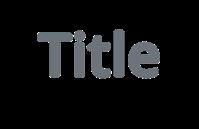



Title IX Coordinator to Title IX Coordinator.


GRANDRIVERSOLUTIONS
The Ever-Evolving Jurisprudence of Title IX
“If nothing else, Title IX Coordinators are experts at adapting.”


01 GRANDRIVERSOLUTIONS
Title IX of the Education Amendments Act of 1972
GRANDRIVERSOLUTIONS
"No person in the United States shall, on the basis of sex, be excluded from participation in, be denied the benefits of, or be subjected to discrimination under any education program or activity receiving Federal financial assistance.”
20 U.S.C. § 1681 (1972).
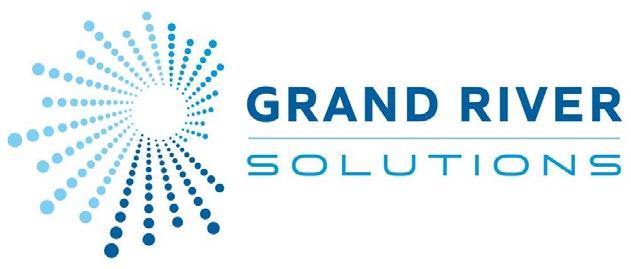
Title IX Applies to All Forms of Sex Discrimination
o Sexual Harassment
o Achievement Awards
o Athletics
o Benefits
o Financial Aid
o Leaves of absence and re-entry policies
o Opportunities to join groups
o Pay rates
o Recruitment
o Retention Rates
o Safety
o Screening Exams
o Sign-on Bonuses
o Student and Employee Benefits
o Thesis Approvals
o Vocational or College Counseling
o Research opportunities
GRANDRIVERSOLUTIONS

The History of Title IX


1972 2011
2020 TIX is Passed
v
Guidance
Dear Colleague
(“DCL”)
Q&A
DCL on Transgender Students
2011 DCL guidance & 2016 DCL on Transgender Students Rescinded 2018 DCL and Q&A 2020 Regulations 2020 Withdrawal of 2001 Guidance 2020 Q&A GRANDRIVERSOLUTIONS
A TIMELINE
1979: Cannon
University of Chicago 1992: Franklin v Gwinnett 1998: Gebser v Lago Vista 1999: Davis v Monroe 2001: Revised Sexual Harassment
2011
Letter
2014
2016
2017:

GRANDRIVERSOLUTIONS
The Title IX Regulations
Sexual Harassment Only
1. Narrows the definition of sexual harassment;
2. Narrows the scope of the institution's educational program or activity;
3. Narrows eligibility to file a complaint;
4. Develops procedural requirements for the investigation and adjudication of sexual harassment complaints, only.

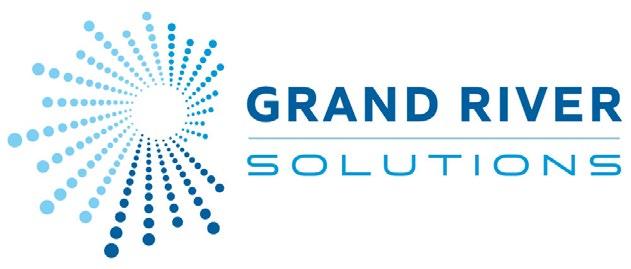
Sexual Harassment: Definedin1996,2001, &2011Guidance
Sexual harassment means conduct on the basis of sex that satisfies one or more of the following:
(1) Conditioning the provision of an aid, benefit, or service of the recipient on an individual’s participation in unwelcome sexual conduct;
(3) Sexual assault is a form of sexual harassment
(2) Unwelcome conduct determined by a reasonable person to be so severe, pervasive, OR objectively offensive that it effectively denies a person equal access to the recipient’s education program or activity; or
*Dating Violence, Domestic Violence, Stalking not included pre 2020 regulations

GRANDRIVERSOLUTIONS
Sexual Harassment: Section106.30
Sexual harassment means conduct on the basis of sex that satisfies one or more of the following:GRANDRIVERSOLUTIONS
(1) An employee of the recipient conditioning the provision of an aid, benefit, or service of the recipient on an individual’s participation in unwelcome sexual conduct;
(2) Unwelcome conduct determined by a reasonable person to be so severe, pervasive, and objectively offensive that it effectively denies a person equal access to the recipient’s education program or activity; or
(3) “Sexual assault” as defined in 20 U.S.C. 1092(f)(6)(A)(v), “dating violence” as defined in 34 U.S.C. 12291(a)(10), “domestic violence” as defined in 34 U.S.C. 12291(a)(8), or “stalking” as defined in 34 U.S.C. 12291(a)(30).


Covered Geography
GRANDRIVERSOLUTIONS

Includes locations, events, or circumstances over which the recipient exercised substantial control over both the respondent and the context in which the sexual harassment occurs, and also includes any building owned or controlled by a student organization that is officially recognized by a postsecondary institution.
On campus or in a building owned or controlled
Off-campus incident that occurs as part of the institution's operations
Institution exercised substantial control over the respondent and the context of alleged sexual harassment that occurred off campus pursuant to § 106.44(a); or
the incident of sexual harassment occurs at an off-campus building owned or controlled by a student organization officially recognized by a postsecondary institution
Not Covered
• Conduct that occurs outside of the United States. GRANDRIVERSOLUTIONS


• Off campus conduct, even if it has an impact on the educational program or activity;

Covered Individuals
Eligibility for Title IX’s Protections

“At the time of filing a formal complaint, a complainant must be participating in or attempting to participate in the education program or activity of the recipient with which the formal complaint is filed.” 34 C.F.R. § 106.30 Applicant

Accepted/Hired Enrolled/Employed
GRANDRIVERSOLUTIONS
Title IX Application Post May 2020 Regulations
• Hostile Environment
Sexual Harassment
• Quid Pro Quo
• Sexual Assault
• Dating/Domestic Violence
• Stalking Type of Conduct



GRANDRIVERSOLUTIONS
Ed Program or Activity

• On campus
• Campus Program, Activity, Building, and
• In the United States


Required Identity

• Complainant is participating or attempting to participate in the Ed Program or activity


Apply 106.45 Procedures

Required Response: Section 106.45 Procedures
Conduct Falling Outside the Scope of Title IX
Apply other institutional policies and procedures







Ensure that those policies and procedures are complaint with VAWA/Clery, other intersecting federal and state laws Title IX Off












Campus Sexual assault Sexual harassment Abroad Quid Pro Quo Between Students Severe or Pervasive, only GRANDRIVERSOLUTIONS
Actual Notice
A Narrowed Scope of Institutional Responsibility
Institution must respond when it has:
“Actual knowledge”
When “an official of the recipient who has authority to institute corrective measures” has notice, e.g., Title IX Coordinator of “sexual harassment” (as newly defined)
that occurred within the school’s “education program or activity”
GRANDRIVERSOLUTIONS
“includes locations, events, or circumstances over which the recipient exercised substantial control” over the respondent and the context in which the sexual harassment occurred
Fact specific inquiry focused on control, sponsorship, applicable rules, etc. against a “person in the United States” (so, not in study abroad context)




Outreach/Response from Title IX Coordinator







Initial Response Requirements Options for Resolution How to File Support Measures, whether or not Formal Complaint is filed
Receipt of Report GRANDRIVERSOLUTIONS
Procedural Requirements for Investigations
Notice to both parties
Equal opportunity to present evidence
Written notification of meetings, etc., and sufficient time to prepare
GRANDRIVERSOLUTIONS
An advisor of choice
Opportunity to review all evidence, and 10 days to submit a written response to the evidence prior to completion of the report
Report summarizing relevant evidence and 10 day review of report prior to hearing

Procedural Requirements for Hearings
Must be live, but can be conducted remotely
Cannot compel participation of parties or witnesses
Standard of proof used may be preponderance of the evidence or clear and convincing; standard must be the same for student and employee matters
Cross examination must be permitted and must be conducted by advisor of choice or provided by the institution
Decision maker determines relevancy of questions and evidence offered
Written decision must be issued that includes finding and sanction

GRANDRIVERSOLUTIONS
Final Rule § 106.45(b)(8)

[I]institutions must offer both parties an appeal from a determination regarding responsibility, and from a recipient’s dismissal of a formal complaint or any allegations therein.

GRANDRIVERSOLUTIONS
Appeals: Mandatory Grounds
(A) Procedural irregularity that affected the outcome of the matter;
(B) New evidence that was not reasonably available at the time the determination regarding responsibility or dismissal was made, that could affect the outcome of the matter; and/or
(C) The Title IX Coordinator, investigator(s), or decision-maker(s) had a conflict of interest or bias for or against complainants or respondents generally or the individual complainant or respondent that affected the outcome of the matter.
GRANDRIVERSOLUTIONS

Other Requirements of the Regulations

Designation of a Title IX Coordinator

Training and posting of training
Dissemination of policy


Separation of Responsibilities







Impartiality Record Keeping


GRANDRIVERSOLUTIONS


GRANDRIVERSOLUTIONS
Building a Foundation of Success 02
Final Rule, Section 106.8

Designation of Coordinator, Dissemination of Policy, and Adoption of Grievance Procedures
“Each recipient must designate and authorize at least one employee to coordinate its efforts to comply with its responsibilities under this part, which employee must be referred to as the Title IX Coordinator.”
Additionally:
• The recipient must notify [everyone] of the name or title, office address, email address, and telephone number of the coordinator(s).
• Any person may report in person, by mail/email, telephone using the contact information.
• Reports can be made at anytime.
GRANDRIVERSOLUTIONS

Final Rule, Section 106.8(a)
GRANDRIVERSOLUTIONS

The institution must notify applicants and all members of the community of the Title IX Coordinators
1. Name or Title
2. Office address
3. Email address
4. Phone number
Any person may report , at any time, sex discrimination, including sexual harassment in person, by mail, by telephone, by email, or any other means using the contact information listed
“Responsibilities Required Under Title IX and the Regulations”
• Serve as the primary pathway for receipt of reports of sex discrimination and sexual harassment;
• Upon receipt of a report, promptly contact the complainant to discuss the availability of supportive measures and to explain the process of filing a formal complaint;
• Coordinate the effective implementation of supportive measures;
• Where a report is made, but a formal complaint is not filed by the complainant, determine whether a formal complaint should be filed and sign that formal complaint;
• Effective implementation of any remedies imposed by a decision maker at the conclusion of a grievance process.
GRANDRIVERSOLUTIONS

Responsibilities Often Delegated to the Title IX Coordinator
• Ensuring that the institutional policies and procedures are compliant with Title IX
• Ensuring dissemination of the policy
• Overseeing the grievance process to ensure it is compliant
• Coordinating a compliant grievance process
• Staffing various roles
• Ensuring training requirements are met
• Record keeping
• Compliance with intersecting federal and state laws
• Education and prevention efforts
GRANDRIVERSOLUTIONS

The Three Essential Functions of Title IX Compliance













Compliance 01 02 03 GRANDRIVERSOLUTIONS
Response Education & Prevention


Another moment, please. GRANDRIVERSOLUTIONS



A Successful Title IX Coordinator… Understands the Importance ofConsistency Adheres to policies and procedures

GRANDRIVERSOLUTIONS




Records or documents everything


Engages meaningfully with the community


Strategically plans for success
Strategic
• Conduct your own review: Evaluate the institution’s state of compliance, strengths, and opportunities in all areas
• Develop plans for success in every area
• Prioritize the implementation and execution of those plans

GRANDRIVERSOLUTIONS

Engage
• Understand the needs of the community you serve
• Build awareness
• Build trust
• When you engage, others engage
• Can assist with workload



GRANDRIVERSOLUTIONS
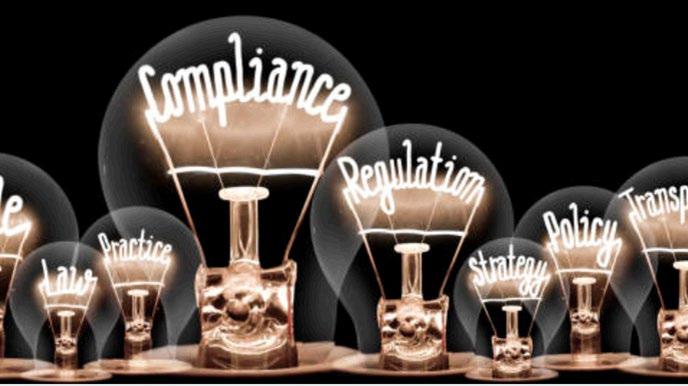
Adhere
• Use the forms that are developed GRANDRIVERSOLUTIONS
• Adhere to policies and procedures
• Implement training plans
• Stick to compliance plans

Consistency
GRANDRIVERSOLUTIONS

Development of Annual Plans for Training
Creation of Forms & Templates
Development of Annual Plans for Compliance
Comprehensive Policies & Procedures

Record
GRANDRIVERSOLUTIONS

Document, Document, Document!
1. Compliance
1. Maintain old policies
2. Keep records of all responses to reporting requirement
2. Training
1. Dates, times, locations
2. Attendees
3. Training materials
4. Reason for the training
3. Response
1. EVERYTHING








Successful Coordinators Approach all Aspects of the Work With Empathy Utilizing Best Practices Impartially GRANDRIVERSOLUTIONS
Impartiality
Avoiding Prejudgment and Bias
GRANDRIVERSOLUTIONS
“The Department’s interest in ensuring impartial Title IX proceedings that avoid prejudgment of the facts at issue necessitates a broad prohibition on sex stereotypes so that decisions are made on the basis of individualized facts and not on stereotypical notions of what ‘‘men’’ or ‘‘women’’ do or do not do.”
85 Fed. Reg. 30254 (May 19, 2020).

Impartiality
Avoiding Prejudgment and Bias

Do not rely on cultural “rape myths”
Do not rely on cultural stereotypes about how men or women purportedly behave
Do not rely on gender-specific research data or theories to decide or make inferences of relevance or credibility in particular cases
Recognize that anyone, regardless of sex, gender, gender identity or sexual orientation, can be a victim or perpetrator of sexual assault or other violence
Avoid any perception of bias in favor of or against complainants or respondents generally
Employ interview and investigation approaches that demonstrate a commitment to impartiality

GRANDRIVERSOLUTIONS
Impartiality
Avoiding Bias

Department also rejected commenters’ arguments that individuals should be disqualified from serving as investigators because of past personal or professional experience
“Department encourages [schools] to apply an objective (whether a reasonable person would believe bias exists), common sense approach to evaluating whether a particular person serving in a Title IX role is biased” WHILE
“exercising caution not to apply generalizations that might unreasonably conclude that bias exists (for example, assuming that all self-professed feminists, or self-described survivors, are biased against men, or that a male is incapable of being sensitive to women, or that prior work as a victim advocate, or as a defense attorney, renders the person biased for or against complainants or respondents”
GRANDRIVERSOLUTIONS

Impartiality
Avoiding Conflicts of Interest

Commenters argued that investigators and hearing officers employed by schools have an “inherent conflict of interest” because of their affiliation with the school, so Department should require investigations and hearings to be conducted by external contractors
Department noted that some of those commenters argued that this resulted in bias against complainants, and some argued that this resulted in bias against respondents Department’s response: Department’s authority is over schools, not individual investigators and other personnel, so Department will focus on holding school’s responsible for impartial end result of process, without labeling certain administrative relationships as per se involving conflicts of interest
GRANDRIVERSOLUTIONS

Impartiality
Avoiding Prejudgment, Bias, and Conflicts of Interest
Bottom line
GRANDRIVERSOLUTIONS
Follow facts of every individual case
Investigate in manner that will not allow even a perception of prejudgment or bias for or against any party



Compliance 03 GRANDRIVERSOLUTIONS

Title
Final
Violence Against Women Act Other, Intersecting Federal Laws State Law
Sources of Compliance Obligations
IX
Regulations
Legal Precedent Institutional Policies Resolution Agreements GRANDRIVERSOLUTIONS
Title IX Compliance Obligations
Designate
Disseminate

Designate a Title IX Coordinator

Respond
Provide
Disseminate Policy
• Notification
• Publications
Promptly respond to instances of sexual harassment occurring within the educational program or activity of which the institution has actual knowledge in a manner that is not deliberately indifferent;
Provide supportive measures in accordance with the requirements of section 160.30
Utilize
Require
Maintain
Comply
For reports of sexual harassment utilize grievance procedures that comply with section 160.45
Require that individuals participating in the grievance process do so impartially and that they are trained in accordance with the 160.45(b)(1)(iii).
Maintain records response to sexual harassment in accordance with 160.45 (10)
Comply with 160.71 prohibition against retaliation
GRANDRIVERSOLUTIONS
Categories of Compliance RequirementsGRANDRIVERSOLUTIONS
 Staffing Notice
Training Procedural Reporting
Staffing Notice
Training Procedural Reporting
Developing a Strategy for Compliance


IDENTIFY COMPLIANCE OBLIGATIONS HOW WILL YOU PROVE THAT YOU ARE COMPLIANT

RECORD KEEPING

GRANDRIVERSOLUTIONS

Implementing the Strategy forCompliance Partnerships Record Keeping Databases Calendar GRANDRIVERSOLUTIONS
Educating ourselves and our communities in a post-regulatory world
Training & Education 04 GRANDRIVERSOLUTIONS


Sources of Training Requirements




Title IX Final Regulations Violence Against Women Act State Law Resolution Agreements


GRANDRIVERSOLUTIONS
Training and Education
Two Areas of Focus
Institutional Response to Sex Discrimination Prevention Education

GRANDRIVERSOLUTIONS
Institutional Response Training
1. Institutional Policies and Procedures
2. Prohibited Conduct
3. Options for Confidential Support
4. The Identify, Role, and Requirements of the Responsible Employee
5. Options and methods for Reporting
6. The Grievance Process
7. The Role of the Title IX Coordinator


GRANDRIVERSOLUTIONS

A Really Important Moment.
Listen Up. It’s Okay…
GRANDRIVERSOLUTIONS

To not know the answer to every question thrown your way

To say,
“I don’t know”
“I’d like to think about that”
”I’ll get back to you”
”Thank you for sharing your perspective”

To decline to answer a question

To recognize and assert your expertise
• Coordinators
• Investigators
• Decision Makers (hearings and appeals)
• Facilitators of Informal Resolution
• “Those who are charged with ensuring a prompt, fair, and impartial investigation and result.” (VAWA)
Faculty
• New faculty
• Existing faculty
• Adjunct Faculty
• Supervising faculty

Who Must Receive Training?
GRANDRIVERSOLUTIONS
• New Students
• Existing Students
• Specialized populations
• Student staff
Staff
• Senior leadership
• Public Safety/campus law enforcement
• Health care workers

IX Staff
Title
Students
Community Partners?

Boards of Trustees Law Enforcement Advocacy Groups
Health Care Providers Attorneys Media

GRANDRIVERSOLUTIONS
Training for Title IX Staff
The scope of the institution’s education program or activity (i.e., its Title IX “jurisdiction”)
How to conduct the grievance process
GRANDRIVERSOLUTIONS
How to serve impartially
The technology to be used at a live hearing
Issues of relevance of questions and evidence
Rape shield protections; and, Issues of relevance in creating an investigative report.
Responsible EmployeesGRANDRIVERSOLUTIONS


Responsible Employee Training: Additional Areas of Focus
Take time to explain the reason for and importance of Responsible Employee reporting
Provide advice on how to receive a report
Provide suggestions on how to share their obligation to report with the reporting individual
Instruct on their options for reporting to the Title IX Coordinator
Fully explain what happens after they report a disclosure

GRANDRIVERSOLUTIONS
Explaining the narrowed scope of Title IX
Special Considerations for Training & Education in the Post Regulatory Landscape
Explaining the institutional decision for two processes/procedures
Responsible Employee challenges
Burden of proof challenges
Length of Training
Time for questions/community processing

GRANDRIVERSOLUTIONS

Prevention Education: Title IX Regulations
"The Department understandscommenters’ beliefs that the Department should create rules that monitor drinking, teach about interpersonal boundaries, sexuality, bystander intervention, and sexual consent communication,. . . . [A]nd while theDepartment does not mandate educational curricula, nothing in the final regulations impedes recipients’ discretion to provide students (or employees) with educational information." 85 Fed. Reg. 30063 (May 19, 2020).
GRANDRIVERSOLUTIONS
Prevention Education: Violence Against Women Act (VAWA)
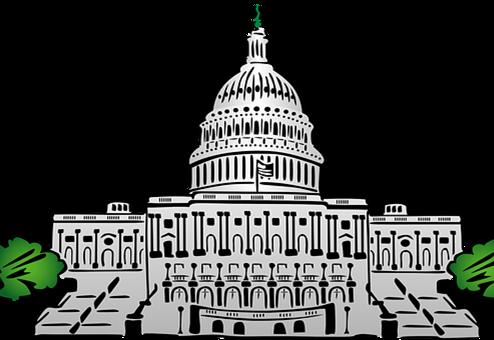
A primary prevention and awareness program [which includes bystander intervention] aims to prevent dating violence, domestic violence, sexual assault, and stalking. Ongoing prevention and awareness campaigns.
GRANDRIVERSOLUTIONS
Elements of Annual Training Strategy
Identify population to be trained
Determine topic
Schedule the training
How will you deliver the training
Partnerships
Communications
Community input/feedback
Engagement as passive education

GRANDRIVERSOLUTIONS
Ongoing Assessment of Trainings




PRE AND POST SURVEYS
OBSERVATION
OPPORTUNITIES
FOR FEEDBACK & SUGGESTIONS
ENGAGE AND LISTEN

GRANDRIVERSOLUTIONS
Communicate Training Successes





Annual Report On your website When training In conversations
GRANDRIVERSOLUTIONS







Questions? Email Us: info@grandriversolutions.com @GrandRiverSols Grand River Solutions Leave Us Feedback:GRANDRIVERSOLUTIONS


A Practical Approach to Navigating Beyond Compliance in a Post Regulatory World
From One Title IX Coordinator to Another: Day 2
July 2022
Emma Hempel and Ann James
GRANDRIVERSOLUTIONS
Receipt of Reports
Actual Knowledge, Report Response, Initial Assessments, & Supportive Measures
Complainant Intake & Supportive Measures
ReportResolution
Remedies Based, Informal, or Formal

01 02 03
Day 2 Agenda GRANDRIVERSOLUTIONS
Receipt of Reports 01
Actual Knowledge, Report Response, Initial Assessments, and Supportive Measures


GRANDRIVERSOLUTIONS
Infrastructure for Reporting

Communicate reporting methods and what folks should expect after submitting a report
Develop methods/avenues for reporting
GRANDRIVERSOLUTIONS
Develop a plan for receiving and reviewing the reports
Develop a protocol that ensures a prompt response to reports

Develop and adhere to a practices for documenting reports and responses




Outreach/Response from Title IX Coordinator


How to File Support Measures, whether or not Formal Complaint is filed





Options
Notice to College/University Regulatory RequirementsGRANDRIVERSOLUTIONS
Receiving Reports and Initiating the Response




1. REVIEW THE REPORT
2. DETERMINE THE APPROPRIATE INITIAL RESPONSE
3. PROMPTLY INITIATE THAT RESPONSE
4. DOCUMENT/RECORD
THE RECEIPT OF THE REPORT AND THE RESPONSE THERETO

GRANDRIVERSOLUTIONS

Email
Initial Outreach FIRST — SAFETY • Create forms
Phone •Use RA • Campus safety In person Follow up emailsGRANDRIVERSOLUTIONS
Emergency Removal of Student
High threshold
Not a determination of responsibility
Whether or not grievance is underway
Individualized
Immediate threat (physical)
Opportunity to challenge GRANDRIVERSOLUTIONS



The Title IX Office receives the following anonymous report via your institution’s online reporting form:
Riley Smith is in trouble. I live on their floor in River Hall and I constantly hear fighting and crying coming from their room at night. Every time I see Riley with their partner, they seem really submissive and nervous and I have noticed bruises on Riley the mornings after the biggest fights. The RA and Riley’s partner are friend and so the RA doesn’t do anything about it. It’s getting so bad that some of the other people on the floor are talking about intervening, but we are afraid of Riley’s partner too.
GRANDRIVERSOLUTIONS

The Title IX Office is contact by a professor who forwards the following email from a student to you:
I really don't want to bother you but I'm in a really hard situation.
I and my boyfriend had a row for these days. And he beated me yesterday and this morning that I attached some pictures before XXXX final starts this afternoon because I found out I couldn't hold pencil because of trembling and I couldn't even think in the first thirty minutes. These pictures shows my arms after he twisting them, which doesn't look violent but feel hurt. One hour before lab final started, I told him I'm going to call police after he beated me, then he dragged me from bed to the floor and threatened to kill me if I call police. It was horrible and hard to reminisce. I knew he tends to use violence before and I forgave him some times when he just pinched my chin and dragged my arm. But this time it is too bad. So he took my phone away and restrain me in my room, not letting me go because I told him I would tell my TA about this whole thing after the final. So he just let me go to final after I promised I won't tell school and police.
When I go to two finals today (XXXX and XXXX, especially the latter), I really couldn't think and even hold pen (and I grabbed my bag but almost nothing in it) for the first thirty minutes. Now everything is done, he promised not to show up in my life nor my room, which is good because I don't want to take penalty on anyone. But I couldn't predict what my final shows out. It won't match my work for the whole semester. I don't expect any makeup chance. I just want to let you know since I barely know any American women here, am I doing wrong? Is there anything I can do to fix anything from academics or life?
Sorry for bothering.
GRANDRIVERSOLUTIONS

The Title IX Office receives the following email from a responsible employee:
GRANDRIVERSOLUTIONS
My name is Professor Jones. One of my students shared that they were raped last weekend at a party by another student. They don’t want the school starting an investigation, and so I am not going to share their name or the details with you. They are thinking about talking to the police but are not sure who to contact. Can you please provide me with information that I can share with the student?



Intake & Supportive Measures
GRANDRIVERSOLUTIONS
Complainant
02
Initial Meeting with the Complainant
• Prepare for the meeting
• Select appropriate space
• Build trust and rapport; empower
• Explain your role
• Discuss available support
• Options for reporting
• Answer questions
• Evidence collection/preservation
• Conclude with a discussion of next steps
GRANDRIVERSOLUTIONS



Supportive Measures

NonDisciplinary

May not unreasonably burden the other party



Designed to restore or preserve equal access


Supportive Measures


Confidential

Nonpunitive



GRANDRIVERSOLUTIONS


As appropriate and reasonably available
Examples of Supportive Measures
• Assistance obtaining access to counseling, advocacy, or medical services;
• Assistance obtaining access to academic support and requesting academic accommodations;
• Changes in class schedules;
• Assistance requesting changes in work schedules, job assignments, or other work accommodations;
• Changes in campus housing;
• Safety escorts;
• Leaves of absence;
GRANDRIVERSOLUTIONS
• Mutual restrictions on contact between the Parties (“No‐contact” orders).

“Mutual Restrictions On Contact Between the Parties”
GRANDRIVERSOLUTIONS

Post Meeting Tasks
Document the meeting
Send a summary email with resources, options, next steps
Make connections
GRANDRIVERSOLUTIONS
Provide the supportive measures
Follow up
Document supportive measures requested, provided, and not provided. Where not provided, indicate why.

Remedies Based, Informal, or Formal


Report
GRANDRIVERSOLUTIONS
Resolution 03

How to Proceed?
Remedies-based Alternative/Informal
No formal process

Signed agreement; Voluntary; What records?
GRANDRIVERSOLUTIONS

Remedies Based Resolution
3(a) GRANDRIVERSOLUTIONS


Remedies Based Resolutions
• Supportive Measures
• Educational Conversations
• Targeted Education
GRANDRIVERSOLUTIONS


Formal Complaint & Notice Requirements
3(b) GRANDRIVERSOLUTIONS


Formal Complaint Filed

 By Complainant
By Complainant
 By the Title IX Coordinator
By the Title IX Coordinator




GRANDRIVERSOLUTIONS









Factors to Consider When Determining Whether to File a Formal Complaint Allegations of Violence Threats Use of weapons Serial predation GRANDRIVERSOLUTIONS
Formal Complaint
A Formal Complaint must include:
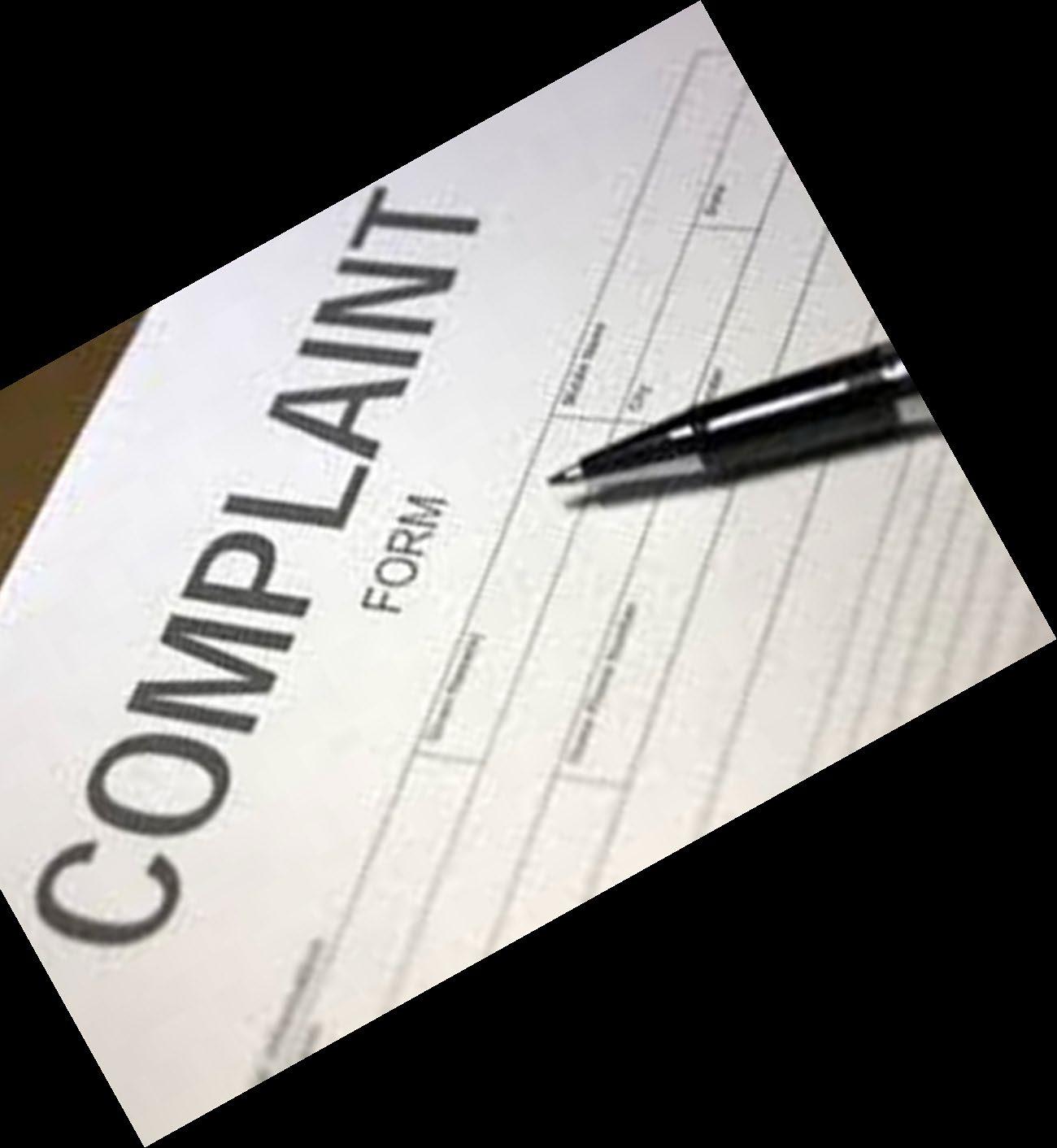
The Complainant’s digital or physical signature, or an indication that the Complainant is the person filing the Formal Complaint;
An allegation of Prohibited Conduct as defined under this Policy. This may include:
• Where the incident(s) occurred; what incident(s) occurred; when the incident(s) occurred;
Identity of Respondent, if known;
A request for a resolution.
GRANDRIVERSOLUTIONS
Formal Complaints may be made to the Title IX Coordinator by US Mail, email, or in person.

Dismissing Complaints
MANDATORY
● Not sexual harassment
● Did not occur in program or activity
● Not against person in the U.S.
GRANDRIVERSOLUTIONS
DISCRETIONARY
● Complainant withdraws complaint
● Respondent no longer enrolled/employed
● School unable to collect sufficient info


Can Proceed Under Other Policy GRANDRIVERSOLUTIONS

Notice of Allegation Requirements

• Notice of the allegations, including sufficient details known at the time and with sufficient time to prepare a response before any initial interview. Sufficient details include:
• the identities of the parties involved in the incident, if known,
• the conduct allegedly constituting sexual harassment under §106.30,
• and the date and location of the alleged incident, if known.
• The written notice must include a statement that the respondent is presumed not responsible for the alleged conduct and that a determination regarding responsibility is made at the conclusion of the grievance process.
• The written notice must inform the parties that they may have an advisor of their choice, who may be, but is not required to be, an attorney, under paragraph (b)(5)(iv) of this section, and may inspect and review evidence under paragraph (b)(5)(vi) of this section.
• The written notice must inform the parties of any provision in the recipient’s code of conduct that prohibits knowingly making false statements or knowingly submitting false information during the grievance process
GRANDRIVERSOLUTIONS

Notifying the Respondent



FIRST—SAFETY





Don’t send on a Friday
Don’t send at 5pm


How will you notify


Make sure support available


Consider impact of notification on Respondent



Written Notification Meetings and Sufficient Time to Prepare





GRANDRIVERSOLUTIONS
Advisor of Choice
The advisor can be anyone, including an attorney;
Institutions cannot place restrictions on who can serve
No training required
GRANDRIVERSOLUTIONS
Institution must provide advisor for the purposes of cross examination, only.


GRANDRIVERSOLUTIONS
Initial Meeting with Respondent
• Prepare for the meeting
• Select appropriate space
• Build trust and rapport; empower
• Explain your role
• Discuss available supportive measures
• Supportive measures that provided to complainant that impact them
• Answer questions
• Evidence collection/preservation
• Conclude with a discussion of next steps

Post Meeting Tasks
Follow up
Document the meeting
Provide the supportive measures
Send a summary email with resources, options, next steps
Make connections

GRANDRIVERSOLUTIONS
Formal Complaint Resolution
Informal Resolution
• Formal Complaint Required
• Parties must agree
• Can withdraw form process
• Alternate Resolution/Mediation
• No appeal
GRANDRIVERSOLUTIONS
Formal Resolution
• Investigation and Adjudication process in compliance with Section 106.45

Informal Resolution
3(c) GRANDRIVERSOLUTIONS



Informal Resolution Requirements
• Formal Complaint must be filed
• Participation in an informal resolution must be voluntary
• Must occur prior to resolution via a formal process
• Parties must be permitted to withdraw and seek formal resolution
• Voluntary, written consent to the informal resolution must be obtained
• Facilitators of informal resolution must be trained
GRANDRIVERSOLUTIONS

Informal Resolution Notice Requirements
• the allegations,
• the requirements of the informal resolution process including the circumstances under which it precludes the parties from resuming a formal complaint arising from the same allegations, provided, however, that at any time prior to agreeing to a resolution, any party has the right to withdraw from the informal resolution process
• and resume the grievance process with respect to the formal complaint, and any consequences resulting from participating in the informal resolution process, including the records that will be maintained or could be shared;
GRANDRIVERSOLUTIONS



GRANDRIVERSOLUTIONS
Facilitators of Informal Resolution as Witnesses

GRANDRIVERSOLUTIONS
Formal Resolution
3(d) GRANDRIVERSOLUTIONS


Procedural Requirements for Investigations

Notice to both parties



Equal opportunity to present evidence
Written notification of meetings, etc., and sufficient time to prepare

GRANDRIVERSOLUTIONS
An advisor of choice



Opportunity to review all evidence, and 10 days to submit a written response to the evidence prior to completion of the report


Report summarizing relevant evidence and 10 day review of report prior to hearing




GRANDRIVERSOLUTIONS
Title IX Coordinator’s Role
In the Investigation
Title IX Coordinator is permitted to conduct the investigation, though this is not favored
If conducting the investigation, do so in accordance with the applicable institutional policy
If not conducting the investigation, may serve as a support to the investigators
May serve as a resource to the parties

Procedural Requirements for Hearings
Must be live, but can be conducted remotely

No Compelling participation
Standard of proof used may be preponderance of the evidence or clear and convincing; standard must be the same for student and employee matters
Cross examination must be permitted and must be conducted by advisor of choice or provided by the institution
Decision maker determines relevancy of questions and evidence offered
Written decision must be issued that includes finding and sanction

GRANDRIVERSOLUTIONS

GRANDRIVERSOLUTIONS
Title IX Coordinator’s Role In the Adjudication

Title IX Coordinator may not serve as the decision maker
May serve to support the decision maker(s)
May participate in the hearing to provide logistical support to decision makers
Responsible for effective implementation of remedies imposed


Final Rule § 106.45(b)(8)
GRANDRIVERSOLUTIONS
[I]nstitutions must offer both parties an appeal from a determination regarding responsibility, and from a recipient’s dismissal of a formal complaint or any allegations therein.

GRANDRIVERSOLUTIONS
Title IX Coordinator’s Role In the Appeal

Title IX Coordinator may not serve as an appellate reviewer
May serve to support the appellate reviewer/panel
May provide logistical support
May coordinate implementation of appellate findings, where appropriate.
Responsible for effective implementation of remedies imposed


Putting it all together…GRANDRIVERSOLUTIONS






Questions? Email Us: info@grandriversolutions.com @GrandRiverSols Grand River Solutions Leave Us Feedback:GRANDRIVERSOLUTIONS
©GrandRiverSolutions,Inc., 2020. Copyrighted material. Expresspermissiontoposttraining materials for thosewhoattended a training providedbyGrandRiverSolutions is grantedto comply with 34 C.F.R. § 106.45(b)(10)(i)(D). These trainingmaterialsare intended foruse by licenseesonly. Use ofthis materialforanyother reasonwithoutpermission is prohibited.
GRANDRIVERSOLUTIONS



















































































































































 By Complainant
By Complainant
 By the Title IX Coordinator
By the Title IX Coordinator












































